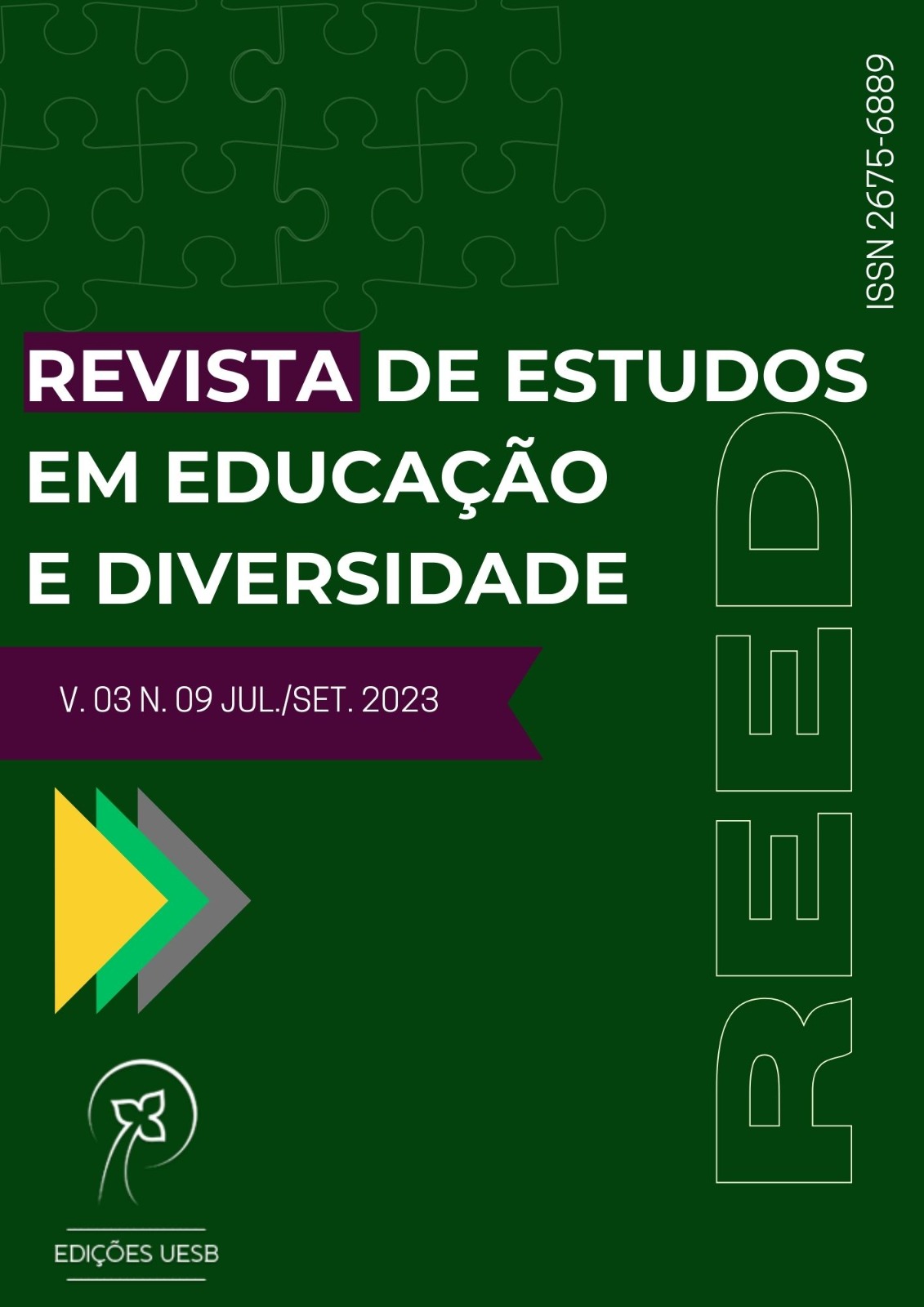The graduation process at the faculty of arts of the royal and pontifical university of Mexico
DOI:
https://doi.org/10.22481/reed.v5i12.14837Keywords:
Graduation, Faculty of Arts, Royal and Pontifical University of Mexico, Higher education, New SpainAbstract
The objetive to analyze the graduation process at the Faculty of Arts of the Royal and Pontifical University of Mexico during the period between 1583 and 1630. The aim is to understand the guidelines, strategies, and requirements for obtaining bachelor's, master's, and doctorate degrees in the first university of New Spain, as well as its impact on student formation and the development of higher education at that time. A qualitative documentary methodology is employed. Primary sources such as examination records, graduation files, and university statutes are analyzed, along with historiographical studies on the Royal and Pontifical University of Mexico. Foucault's genealogy is used as a theoretical tool to understand the dynamics and influences behind the formation of graduation criteria in this specific historical context. The results of this study highlight the importance of the graduation process in the development of higher education in Mexico, demonstrating how the criteria established in this era influenced future graduation standards in universities.
Downloads
References
ARCHIVO GENERAL DE LA NACIÓN (AGN). AGN, Recuerda la apertura de la Real y Pontificia Universidad de México. (Ciudad de México, Gobierno de México, 2019). Disponible en: https://www.gob.mx/agn/articulos/agnrecuerda-la-apertura-de-la-real-y-pontificia-universidad-de-mexico. Acceso en: 29 nov. 2021.
BECERRA, José. La organización de los estudios en la Nueva España (Tesis de pregrado, Universidad Nacional Autónomo de México) 1963. Disponible en: http://132.248.9.195/pmig2019/0123621/Index.html. Acceso en: 21 jan. 2024.
CANIEGO DE GUZMÁN Gaona, Sancho. Lugares - Nueva Galicia (reino, jurisdicción antigua, México (Ciudad de México, Portal de Archivos Españoles PARES) 1998. Disponible en: http://pares.mcu.es/ParesBusquedas20/catalogo/autoridad/77906#:~:text=La%20Nueva%20Galicia%20(oficialmente%20%22Nuevo,Provincia%20de%20Colima%20. Acceso en: 18 nov. 2021.
CASAS IÑIGUEZ, Mauricio. El grado de bachiller en la Antigua Universidad de México, 1553-1630 (Tesis de pregrado, Universidad Nacional Autónoma de México), 1998. Disponible en: http://132.248.9.195/pdbis/69753/69753.pdf. Acceso en: 29 nov. 2021.
CÓRDOBA, Mariana. Um acercamiento a la historia de la educación. Revista Universitaria Digital de Ciencias Sociales (RUDICS) v. 5, n. 8, p. 92-123, 2014. Disponible en: https://virtual.cuautitlan.unam.mx/rudics/?p=52#:~:text=La%20educaci%C3%B3nv%20de%20las%20mujeres%2C%20en%20la%20comunidad%2C%20se%20recib%C3%ADa,una%20gran%20diferencia%20en%20la. Acceso en: 29 nov. 2021.
DECRETO. Facultad a todos los colegios para establecer cátedras de derecho natural, civil y canónico y conferir [menos los de México y Guadalajara] a sus respectivos alumnos todos los grados menores. México, 13 de octubre de 1823, en Colección de los decretos y órdenes del soberano congreso mexicano. Desde su instalación en 24 de febrero de 1822 hasta 30 de octubre de 1823, en que cesó, México, Imprenta del Supremo Gobierno de los Estados Unidos Mexicanos, p. 209. 1825.
FOUCAULT, Michel. Genealogía de poder. Madrid: Ediciones Altaya.1992.
FOUCAULT, Michel. Microfísica del poder, Madrid, La Piqueta.1992.
FOUCAULT, Michel. Vigilar y castigar: nacimiento de la prisión. Buenos Aires: Siglo XXI Editores. 2002.
GARCÍA, Joaquín, La Instrucción Pública. Dirección General de Bibliotecas de la Universidad Autónoma de Nuevo León. 1983. Disponible en: http://cdigital.dgb.uanl.mx/la/1080013639/1080013639.PDF. Acceso en: 29 nov. 2021.
GÓMEZ, Valentín, Ley de 23 de octubre de 1833, en Leyes y reglamento para el arreglo de la Instrucción pública en el Distrito Federal, México, p. 11-23. 1934.
GONZÁLEZ, Enrique. La universidad virreinal, una corporación, en La Universidad de México: recorrido histórico de la época colonial al presente, México: UNAM-CESU, p. 19. 2001.
GONZÁLEZ, Enrique y GONZALBO, María del Pilar. La organización de los estudios durante el primer siglo de la Real Universidad de México. Ciudad de México, Universidad Nacional Autónoma de México. 1986. Disponible en: https://dialnet.unirioja.es/servlet/articulo?codigo=3302433. Acceso en: 29 nov. 2021.
MARTÍNEZ Hernández Gerardo, La Historiografía sobre la Real Universidad de México y sus contextos, Revista de Historiografía, v. 31, p. 231-251. 2019.
NAVARRETE-CAZALES, Z.; GRANADOS, H. M. M.; MEMBRILLO, M. G. L. El sistema nacional de educación superior tecnológica en méxico: políticas y estructura. Revista de Estudos em Educação e Diversidade - REED, [S. l.], v. 1, n. 2, p. 320-338, 2020. DOI: 10.22481/reed.v1i2.7898. Disponível em: https://periodicos2.uesb.br/index.php/reed/article/view/7898. Acesso em: 1 out. 2024.
PAVÓN, Armando; BLASCO, Yolanda; ARAGÓN, Luis-Enrique, Cambio académico. Los grados universitarios. De la escolástica a los primeros ensayos Decimonónicos Revista Iberoamericana de Educación Superior (RIES), v. 4, n. 11, p. 61-81. 2013. Disponible en: https://www.ries.universia.unam.mx/index.php/ries/article/view/100. Acceso en: 29 nov. 2021.
HASTINGS, Rashdall. The universities of Europe in the middle agges, Somerset, Oxford University Press, Real pragmática, en Francisco Fernández del Castillo, México, Consejo de Humanidades, UNAM, p.115-123, 1997.
RODRÍGUEZ, Nina Lorena. La Real y Pontificia Universidad de México: su pensamiento filosófico y su influencia educativa en la universidad actual Tesis de pregrado en Universidad Nacional Autónoma de México. 1993.
VERGER, Jacques, Profesores, en Historia de la Universidad en Europa. Volumen I. Las universidades de la Edad Media, ed. Hilde de Ridder-Symoen Bilbao, Servicio editorial Universidad del País Vasco, 163-191, 1994.
Downloads
Published
How to Cite
Issue
Section
License
Copyright (c) 2024 Revista de Estudos em Educação e Diversidade - REED

This work is licensed under a Creative Commons Attribution 4.0 International License.
You are free to:
Share - copy and redistribute the material in any medium or format; Adapt - remix, transform, and build from the material for any purpose, even commercially. This license is acceptable for Free Cultural Works. The licensor cannot revoke these freedoms as long as you follow the terms of the license.
Under the following terms:
Attribution - You must appropriately give credit, provide a link to the license, and indicate if any changes have been made. You may do so in any reasonable way, but not in a way that suggests that you or your use is endorsed by the licensor.
There are no additional restrictions - You cannot apply legal terms or technological measures that legally restrict others to make any use permitted by the license.






